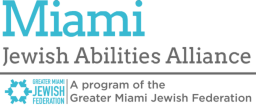EARLY CHILDHOOD EDUCATION
It’s very important to find an early childhood program that is built on respect for families with a focus on ensuring that every child has a place in the community and the best possible chance to succeed. Support, information and coordinated services in community settings are what will enhance your ability to manage the gifts and the challenges of your child.
As families transition from early intervention into preschool, the focus on the child’s strengths and inclusion in community activities continues. Preschool special education services and other community supports for young children and their families assist them in developing the skills necessary for success in school.
The Statistics
If you suspect a learning disorder the most important first step is to support your learner’s journey to understanding their strengths and challenges.
Individualized Family Service Plan (IFSP)
To get the educational support you need for your child, your state will use an Individualized Family Service Plan (IFSP) or an Individualized Education Program (IEP). The IFSP guides the early intervention process for children with disabilities and their families, ensuring the child’s services are in line with the Individuals with Disabilities Education Act (IDEA). The IFSP is both a plan and a process. The plan is a written document that identifies the outcomes, services and supports needed for the child and family. The process includes ongoing assessment to gather, share and exchange information between the family and the early intervention practitioners to help parents make informed choices about early intervention services, i.e. speech therapy or occupational therapy, for the child and family.
View a sample of what an IFSP may look like, click here
In order for the child to receive services, the parent must consent to the IFSP. Consent can be withdrawn at any time.
The IFSP is reviewed every six months or more frequently, if appropriate. Parents must participate in an annual IFSP meeting to review their child’s plan and outcomes each year to determine if any plan changes are needed.
The IFSP contains the following components:
Local Resources
The Florida Diagnostic & Learning Resources System-South (FDLRS-South) provides diagnostic, instructional, and technology support services to district exceptional education programs and families of students with disabilities. FDLRS-South directly serves Miami-Dade and Monroe county school districts in the areas of Child Find, Parent Services, Human Resource Development (HRD), and Technology.
Florida Early Learning Resources. Families with children who are at risk for developmental delays or have disabilities and/or special healthcare needs can use the this link to find referrals to statewide services, such as advocacy, education, training, resources and information, in addition to special services available in local communities.
Jewish Schools Please contact the Center for Jewish Education for an up to date listing of Jewish schools with special education.
The Hebrew Free Loan Association of South Florida, Inc. (HFLA), is a a 501(c)(3) non-profit organization and offers interest-free loans to Jewish individuals and families in need and who may not qualify for normal loan resources. HFLA personal loans of up to $5,000 provide financial assistance for situations such as but not limited to emergencies, medical and dental expenses, car and housing repairs, life-cycle events, early childhood and continuing adult education, divorce, immigration costs, victims of domestic violence, mortgage and rental costs, etc.


